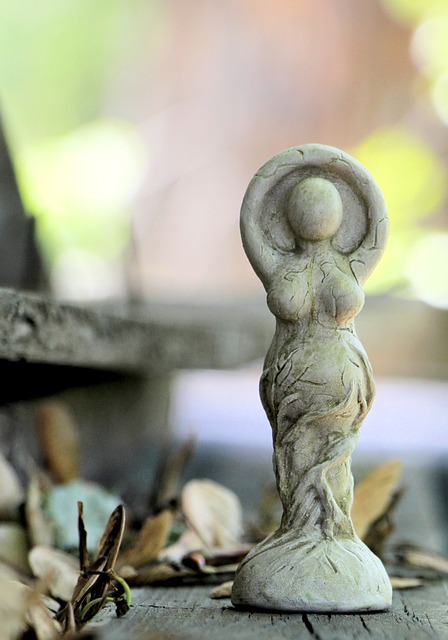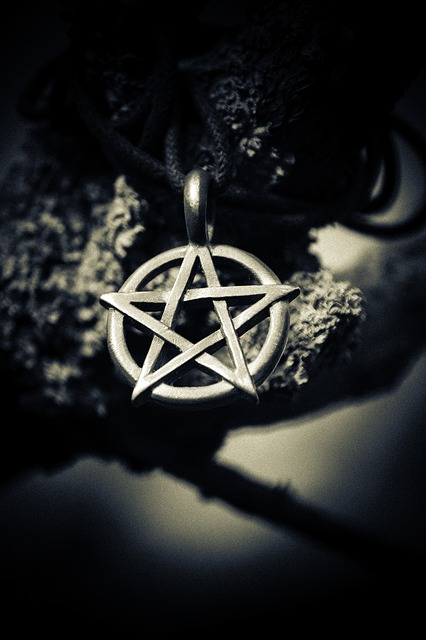
Pagans and Wiccans both have a root in the pre-Christian beliefs and practices. To understand the difference between pagan and Wiccan, we need to embark on a journey to ancient rituals and traditions.
The Umbrella term Paganism is a combination of several belief systems. So, when we indicate two individuals as pagans, not necessarily, it means that they both have the same kind of religious faiths.
Wicca, a newly accepted religion, is a part of modern-day paganism. This religion embraces many practices from ancient paganism. Wiccans emphasize witchcraft. The term Pagan witchcraft is often used instead of Wicca.
So, in a broader sense, a person who doesn’t belong to any major world religions, especially Abrahamic religions, is considered a Pagan. On the other hand, a Wiccan is a person who has faith in modern-day paganism (or Neo-paganism) and practices witchcraft.
Table of Contents
Comparison chart
| Difference | Paganism | Wicca |
| Belief | Paganism has ancient beliefs by generations. | As a neo-pagan movement, Wicca is a revival of old pagan cultures in a syncretic form. |
| Religion | Paganism refers to many cults and religions. | Wicca is a group of various cults. |
| Orientation | Pagan. | Neo-Pagan. |
| Theology | Paganism has many theologies: Polytheism, pantheism, duotheism, henotheism, animism, et cetera. | Wiccans are duotheists with a mix up with henotheism. |
| Antiquity | Paganism is ancient. | Wicca is a modern-day movement. |
| Witchcraft | Not every pagan cult or religion has witchcraft. | Witchcraft is a part of Wicca. |
| Duotheism | Not every pagan is a Duotheist. | Wiccans are Duotheists. |
| Henotheism | Not every pagan is a henotheist. | Wiccans are henotheist |
Pagan definition
In simple words, a person holding beliefs of paganism is a pagan. So, what is paganism?
The classical Latin word Paganus means rural or rustic. The early Christians referred to polytheism as Paganism. According to the definition, a religion other than major world religions, especially pre-Christian or non-Christian, can be defined as Paganism.

Paganism is basically a combination of the oldest beliefs and cults of the world. World’s oldest cults were approximately 32,000 to 50,000 years old. The conceptions of the world’s first religions were polytheistic and animistic: Paganism was one of them.
Pagan beliefs and practices
Worshiping nature is often considered the central source of Paganism. Pagans see divine power in the natural cycle of life and death. They worship many pre-Christian deities through festivals and ceremonies. These are the practices that make pagans polytheists, pantheistic, duotheistic, henotheist, kathenotheism, and animists.
Polytheism:
The word polytheism comes from Classical Greek Poly (Πολυ) means many and Theos (Θεος) means divine or god. Polytheist faith evolved around many gods and goddesses. Ancient Greek religion, ancient Nordic religion, ancient Roman religion, ancient Arabian religion, and Vedic religion – all were polytheistic.
Pantheism:
The word Pantheism comes from Classical Greek Pan (Παν) meaning All or of everything and Theos (Θεος) means Divine or God. Pantheism believes in the unity of divinity and reality. It does not believe in a distinct god. Confucianism, Taoism, Shintoism, Advaitvad theology, Sanamahism, et cetera are pantheistic cults, theologies, and religions.
Duotheism:
The word Duotheism comes from Classical Greek Dyo (Δυο) means Two and Theos (Θεος) means divine or god. Duotheism is also known as bitheism or ditheism. Duotheist believes in two gods or two goddesses or one god and one goddess. Zoroastrianism and Taoism are duotheistic religions.
Henotheism:
The word henotheism comes from Classical Greek Heno (Ενο) means single, and Theos (Θεος) means divine or god. In henotheism, different deities are viewed in a single deity. Many polytheists and Duotheist cults and religions have a mixture of henotheism. In Greek mythology, maiden goddess Hecate (Εκατη) and in Roman mythology moon goddess Diana, both are triple goddesses.
Kathenotheism:
The word kathenotheism comes from Greek kath hena theon (καθ ένα θεόν), means for one god (at a time). Kathenotheism is worshipping one god while not rejecting other deities. Many polytheists and Duotheist cults and religions have a mixture of kathenotheism. The ancient Arabian religion is an example of kathenotheism.
Animism:
The word Animism comes from the Latin word Anima which means life, breath, or spirit. Animists believe that everything has spirits – either natural or manmade; either material objects or non-material objects. The majority of pagan faith is based on animism. Voodoo is an animist polytheist cult.
Pagan against other world beliefs
Many world religions differ from each other while it comes to the conception of god, rituals, and other beliefs. Paganism is not a monotheist religion, as well as not a religion that doesn’t believe in god.
Heretics, infidels, pagans, and heathens
Christians call a non-religious and a non-Christian a ‘heretic’ or an ‘infidel.’ Catholics call a person who does not obey Catholic doctrines an ‘infidel.’ A Pagan is a believer of a polytheist or a pantheist religion. All the non-Abrahamic believers and non-believers of any religion are called the heathen; the Islamic Arabic word for them is kaafir (کافر).
The word Pagan in Islamic Arabic is mushriyq (مشريق). In Islamic Arabic, one who converts oneself from Islam to non-Islam calls a murtad (مرتد). The English word apostate means one who converts oneself from one’s own religion or family religion.
Difference between a pagan and an Abrahamic believer
A pagan believes does not believe in a single almighty god. Animist pagans worship natural or man-made objects. On the other hand, an Abrahamic faith beholder believes in an almighty God and does not worship anything but god.
All the Abrahamic religions have some basic points of view for not accepting Paganism, though; the majority of Abrahamic sects have some pagan cultural mix-ups. Pagans had more freedom in personal life and religious faith than Abrahamic religious believers.
Differences between a pagan and an atheist
A pagan is a believer in spirituality and supernatural objects, and gods and goddesses. On the other hand, a materialist atheist does not believe in the spiritual and miraculous world. However, there is a genre of atheism that is called spiritual atheism, which believes in spirits but does not believe in god.
The majority of religions are spiritualistic, and a few are materialistic. Paganism is a spiritualistic ritual-based religion. But every pagan cult does not follow any specific religion.
Atheism is basically not a religion or any specific theory. One who simply does not believe in spirituality is an atheist. But some religions also have an atheistic theory. Adherents of these religions and cults call themselves religious atheists. Otherwise, a normal atheist is simply a non-religious person or a materialist.
Wiccan definition
In a simple term, an adherent of Wicca beliefs is called a Wiccan. Wicca is not a traditional religion or natural paganism. It is a modern concept that embraces witchcraft and a syncretic duotheistic (mix up with henotheism) Neo-Pagan movement. However, there are other practices like atheism, pantheism, polytheism that can be seen among Wiccans.

This movement resurrected in the British Isles in the first half of the twentieth (20th) century. It can be considered as a modern form of pre-Christian or ancient practices.
The practices of Wiccans were first given a name by Gerald Gardner in his book Witchcraft Today that was published in 1954. In this book, he used the term Wica that was later modified into Wicca in the 1960s. According to Gardner, Wica was an Anglo-British word meaning Wise people.
Neo-Pagan Movement
Neo-paganism is a movement of reviving the old pagan beliefs and cultures in a syncretic form. It is psychologically more modern-day romantic-nostalgic cultural revivalism than traditional die-hard religious faiths. Wicca is an example of the neo-pagan movement. Let us go through some pagan and neo-pagan practices in order to understand Wicca.
Witchcraft:
Witchery or witchcraft means practicing supernatural or metaphysical magical skills. A witch is a female practitioner of witchery, and a wizard or a warlock is a male one. Some animist paganism has a witchery tradition. The word Witchcraft comes from Old English Wicce means Witch, and Cræft means Craft. In Abrahamic religions, witchcraft is a heresy.
Spellcasting:
The spell is a set of words, verses, or formulas recited by a witch or wizard to carry out magical power. To activate these spells into action is spell casting. There is a similarity between spell casting of witchcraft and recitation of religious texts for the virtue of religious people.
Sorcery:
Sorcery means malevolent magic performed with the intention to harm someone. The Latin word for sorcery is maleficium (plural: maleficia).
Necromancy:
The practice of conjuring the spirits of the dead is Necromancy. It is a practice of communicating spirits for prophecy or raising the dead for any purpose.
Demons:
Demons are a part of sorcery. By spell casting, a warlock or witch appoints demons to carry out an action.
Wiccan beliefs and practices
Wiccans worship two major deities, the female god is called the Triple goddess, and the other is a male God called the Great Horned God. According to the Wicca belief system, everything in nature that exists has two aspects: one is a male aspect, and the other is a female aspect. They believe that the two major deities have equal power.
However, some of the beliefs in Wicca are polytheistic. They equally worship other selected nature-based deities along with the two major deities.
The goddess of Maiden, Mother, and Crone combinedly defines the Triple Goddess. The Maiden is represented by the waxing moon, the Mother represented by the full moon, and the Crone represented by the waning moon.
The Maiden symbolizes the promise of new beginnings, inauguration, birth, expansion, enchantment, charm, youth, and youthful enthusiasm. The Mother represents fertility, sexuality, ripeness, fulfillment, maturity, stability, power, and life. And the Crone represents wisdom, knowledge, tranquility, death, and endings.
The Triple Goddess is the consort of the Horned God. Like the Triple Goddess, the Horned God is a triune God who is split into three aspects: the Youth (Warrior), the Father, and the Sage. The Wicca triune god can represent himself in three forms: the Sun God, the Sacrificed God, and the Vegetation God. British Traditional Wiccans (BTW), Reclaiming Wiccans, various eclectic Wiccans are some Wiccan cults.
The Wiccan Rede:
An it harm none do what ye will – this eight-word couplet is known as the Wiccan Rede. It simply means Do whatever you want as long it harms none. This has a longer version of a six-line poem. It provides a Wiccan moral system.
Eclectic Wicca:
Eclectic Wiccans have their own syncretic spirituality rather than Wicca traditions. The paths of eclectic Wiccans are known as eclectic Wicca cults.
The New Age:
A type of modern popular consumerist witchcraft is known as New Age Witchcraft, and the participants of this witchcraft are known as the New Age.
Wicca and magic
Magic is a performing art in which the performer entertains audiences with illusive tricks. It has different subgenres: illusion, stage magic, and close up magic. Wicca embraces witchcraft. In witchcraft, Magic (sometimes spelled magick) means supernatural practices. There are various types of supernatural magics practiced in witchcraft:
White magic:
White magic uses for selfless and helpful purposes. It is the right-hand counterpart of black magic.
Black magic:
Black magic is used for selfish and harmful purposes. It is the left-hand counterpart of white magic.
Gray magic:
Gray magic is neutral. It has no beneficial or harmful purpose.
High magic:
High magic is used to attract forces and energies from heaven to achieve unity with divinity. It is indoor magic. Though, witches do magic mainly outdoors.
Low magic:
Other magic except high magic is low magic. Wicca magic or Wicca magick is white magic that does not harm anyone. Wiccans also perform sex magic.
The key differences between Pagan and Wiccan
- The adherents of paganism are pagans, the adherents of Wicca are Wiccans.
- Another difference between Pagan and Wiccan is in their belief system. While the Pagans have ancient beliefs by generations, the Wiccans are from a revival movement of old pagan witchcraft cultures in a syncretic form.
- Pagans are divided into many cults and religions. Wiccans are a group of various neo-pagan witchcraft cults.
- Pagans are traditional die-hard religionists with ancient faith and wisdom. Wiccans are psychologically modern-day romantic-nostalgic cultural revivalists.
- Pagans are polytheists, pantheists, duotheistic, henotheistic, animistic, etc. On the other hand, Wiccans are duotheistic (mixed up with henotheism.)
Pagan Vs Wiccan: Holidays and Celebrations
As we already know that the term Wicca resurrected from paganism or pre-Christian religions make Wiccans modern pagans. So the difference between pagan and Wiccan celebrations is basically the difference between ancient and modern-day practices.
When it comes to ceremonies, there are similarities. The major celebrations that can be seen among Pagans and Wiccans are the sabbath on a full moon. The sabbat consists of eight major holidays; these are Yule, Imbolc, Ostara, Mabon, Beltane, Litha, Lughnassad or Harvest, and Samhain.
Wiccans also celebrate the esbat on a new moon. Esbat is a coven meeting. Coven means gathering of witches and wizards. It is a time for love feast, psychic training, and healing work.
However, as a modern-day religion, Wicca accepts reformation. They create and develop rituals and witchcraft and magic and practices, while most of them are influenced by the ancient forms of pagan beliefs.
Frequently asked questions (FAQs):
Are Wiccans vegetarian or non-vegetarian?
Officially Wicca has no ban on eating animal meat. But personally, most Wiccans do not want to harm any animal, prefer to be vegan or vegetarian
Witchcraft, Wicca, and Paganism – What is the Difference?
Wicca is a modern witchcraft. Witchcraft is a cult of spiritual magical skill-practice. Wicca is a specific witchcraft cult, not all witchery is Wicca. Polytheists, pantheists and animists are identified as pagans by Abrahamic religious people. Witchcraft is a pagan cult. So, Wiccans are pagans also.
What is the difference between Wicca and Witchcraft?
Wicca is a group of modern witchcraft cults. Witchcraft is an ancient cult practice of spiritual magical skills. All witchcraft is not Wicca.
How to identify a witch or wizard?
A witch is a female practitioner of witchery, and a wizard is a male one.
What is the difference between wizard and warlock?
Wizard and warlock both are men who command supernatural forces in pagan beliefs.
Is Christian Doctrine of the Trinity of God pagan?
The Trinity of God is an ancient kathenotheist concept found in many pagan religions and texts, for example, ancient Egyptian religion, ancient Greek religion, Roman mythology, and Indian Purana mythology. Osiris, Ios (Isis), and Gor (Horus) are the ancient Egyptian trinity. Brahma, Vishnu, and Shiva are the trinity of god in Indian Purana mythology.
Is Christmas a pagan festivity?
Early Christians did not have the Christmas festival, because birthday celebration is a pagan ritual. Roman Catholics first celebrated Christmas in the 4th century CE. The Church selected December 25th as the Christmas date in the honor of the later Roman sun god Sol invictus.
Was Mary a pagan goddess?
Some people identify Mary as the Greek maiden goddess Hecate or the Roman maiden goddess Diana.
What is the world’s oldest religion?
Either Jainism or Samaritanism is the oldest religion on earth. But these two are not the oldest belief or cult. Jainism may be much older than Samaritanism.
What is the World’s longest-living religion?
Either Jainism or Samaritanism is the world’s longest-living religion. Both are slightly more than twenty-seven hundred (2700+) years old. Jainism may be much older.
Conclusion
Wiccans are mainly mystic-romantic of reviving-culturism. While the pagans are ancient knowledge based die-hard faiths. The neo-pagan religions can be defined as old wine in a new bottle. Here in this article, we have tried to discuss the difference between Pagan and Wiccan by deeming different rituals, traditions and belief systems.

Craig is a full-time academic and research-based article writer from California. A trained content creator who started his career as a column writer for local magazines and newspapers. His works have been published on many renowned online platforms.
